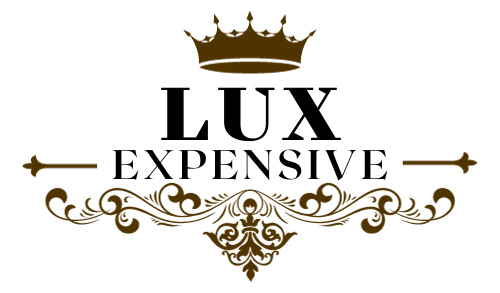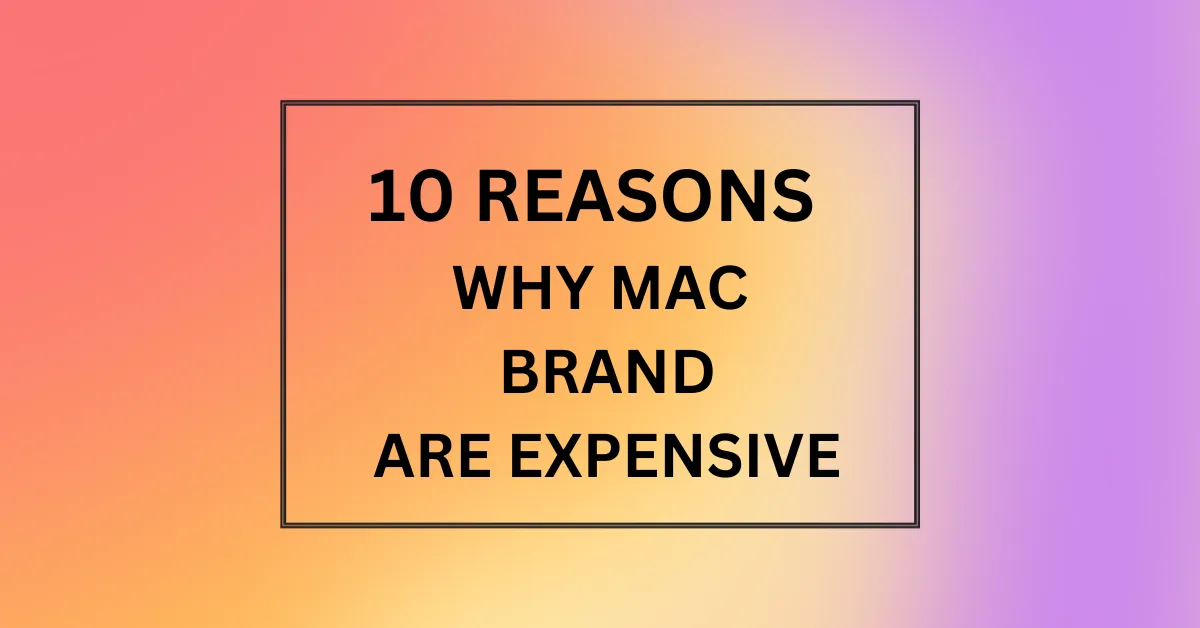Macs are expensive because Apple utilizes premium design and components to optimize performance, and tightly integrated proprietary hardware and software to create a refined, Mac-tailored computing experience. The high prices also fund Apple's broader ecosystem, services, and environmental values that appeal to loyal customers.
When you compare Macs to PCs with similar specs and components, the prices always seem inflated. Macs routinely cost hundreds or even thousands more than their Windows-running counterparts. But is there a good reason behind those Apple premiums beyond just branding? As a long-time Mac user myself, I definitely think so. Here’s a deep-dive into why Macs cost more but can still be worth it.
Top 10 Reasons Why is Mac So Expensive
1. Superior Build Quality and Design Require Better Materials
MacBooks and iMacs are crafted from high-end metals, glass panels, and top-notch displays that simply cost more money than cheaper plastic alternatives. Apple cares intensely about aesthetics and durability, so they only use premium materials.
This shows in day-to-day use; Macs just feel more sturdy and resilient than most consumer PCs thanks to things like aluminum chassis and reinforced hinges. The clean, elegant Apple design language additionally projects a more professional image for many users.
2. Tight Hardware and Software Integration Optimizes Performance
Since Apple controls their entire technology stack from chips to operating systems, Mac hardware and software is uniquely optimized to work flawlessly together. This level of vertical integration is virtually impossible for companies reliant on third-party Windows, Intel, AMD etc.
The result is Macs can utilize lesser on-paper specs to achieve smoother general workflow, stability and boot times compared to many PCs. The premium price tag reflects just how valuable this tight integration and reliability is for users who value optimized everyday use over benchmarks.
3. macOS Offers a Refined Desktop Experience
While power users can access a Unix command line, Macs provide a much more intuitive and user-friendly desktop experience versus Windows aimed at tech novices. macOS design prioritizes simplicity, visual coherence and just working smoothly without constant tweaking.
Mac software from consumer apps to pro tools like Final Cut Pro also feels more modern and polished than competing Windows offerings. This premium software ecosystem increases the value proposition of the Apple tax for creatives and professionals especially.
4. Retail Stores Provide Personalized Support and Services
Theglobal network ofApple Stores represents a massive and unique retail footprint that adds significant overhead, but also reflects in the elevated customer buying experience and after-purchase support.
Stores offer personalized shopping sessions guiding less tech-savvy buyers and configuration options that are tailored for specific use cases.
The Genius Bar provides quick and often free troubleshooting and repairs previously unheard of. Though online retailers offer cheaper Mac pricing, Apple Store perks help offset the cost differential for many.
5. Powerful Proprietary Silicon Like the M1 Challenges Windows
Apple’s growing portfolio of proprietary SoC silicon like the M1 enables them to optimize performance and efficiency beyond what is possible using third-party Intel, AMD or Qualcomm processors in Windows machines. Custom Apple chips also futureproof longevity.
While Apple silicon commands R&D budgets contributing to premium prices, benchmarks show considerable value gains over comparative Windows hardware with conventional chips. As Apple silicon matures, it may neutralize pricing complaints.
6. Higher Margins Fund Other Key Apple Services
It’s no secret Apple reaps tremendously high profit margins from Mac sales, even relative to other personal computing brands. But these revenues enable them to subsidize and sharply price disruptive hardware products like iPads and iPhones plus fund massive investments into next-generation technologies, retail expansion and even environmental initiatives.
So buying overpriced Macs indirectly helps progress Apple’s broader ecosystem, services and values; a reality that eases the sting of budget Windows alternatives for some loyal customers.
7. Resale Value Stays Higher for Longer
While any tech purchase is a depreciating asset, Macs broadly sustain excellent resale value for ~3 years before dropping off according to market data. By comparison, similarly configured Windows PCs face much steeper decline curves resulting in maybe half the residual value after a couple years.
The reliability, enduring performance and desirability of Mac products basically makes them cheaper long-term assets compared to disposable Windows machines. This goes a long way toward ultimately justifying the initial Apple premiums.
8. macOS and iOS Ecosystem Integration
For iPhone or iPad owners already embedded in Apple’s mobile ecosystem, staying within that ecosystem for laptop purchases can improve general device synergy and workflow.
Handoff, Airdrop, iCloud, iMessage, FaceTime, Apple Pay, iTunes and tight Photos/Notes/Calendar integration all interconnect more seamlessly when using mutually supported hardware and software. Leaving the walled garden comes with a lot of interconnectivity drawbacks deterring switchers.
9. Environmental Sustainability Is Prioritized
Apple has aggressively committed the past decade to environmental sustainability across their business including recycled materials in products, renewable energy and simplified repairs to extend lifespan. While Apple still produces premium tech, they counterbalance indulgent excess through earth friendliness where possible.
These initiatives reassure eco-conscious buyers getting value beyond hardware alone from purchasing Macs. With sustainability rising as a consumer priority, Apple’s progress helps merits pricier gear.
10. Creative Professionals Prefer Macs
Many creative fields overwhelmingly favor Apple computing compared to Windows, including graphic design, music production, photography and video editing. This institutional bias traces back decades to Apple historically catering engineering workflows to these users first before Microsoft.
Consequently entire studio ecosystems and legacy user familiarity reinforce Mac dominance in creation-focused fields to this day. For creative careers, investing in uniformly standardized Macs simply makes technical and collaborative sense despite cost.
Is Apple A Good Brand?
Yes, Apple’s Mac brand is widely considered one of the best computer brands thanks to their premium hardware, tight integration between devices, and intuitive macOS software ecosystem.
Are mac Worth The Price?
For creative professionals, students, and everyday users who prioritize user experience, ecosystem continuity, build quality and customer support, paying more for Macs is usually worth it.
Where To Buy macs?
Macs are sold at Apple’s website and physical retail stores, select electronics chains like Best Buy, and through wireless carrier deals, with Apple Stores providing the best purchase experience.

